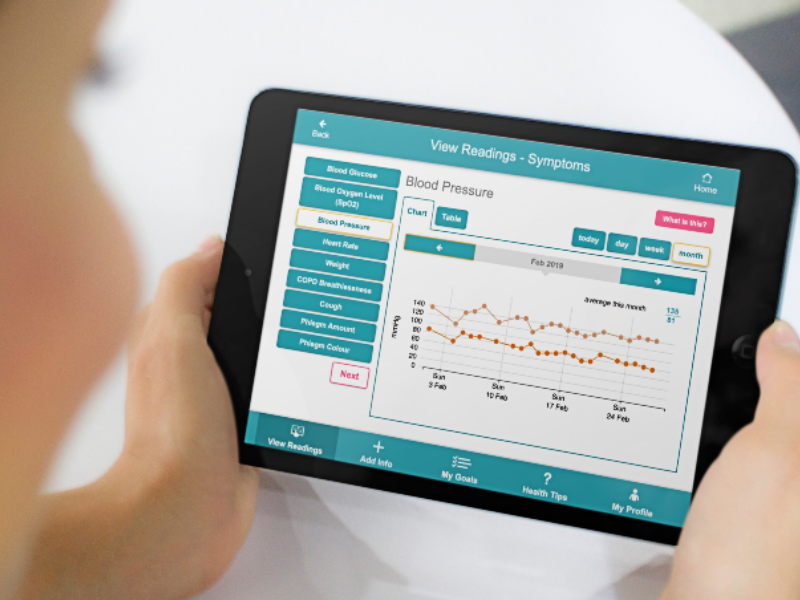A new virtual health support service being rolled out across the south east of Ireland has delivered dramatic reductions in emergency department visits and hospital admissions for patients with chronic diseases.
The SMILE service enables people to proactively self-manage their health and well-being from home using wearable technologies, while being supported by nurse-led remote assessment and triage. Deterioration in the patient’s condition triggers remote monitoring alerts.
Using the ProACT digital health platform, developed by researchers in NetwellCASALA at Dundalk Institute of Technology and the Trinity Centre for Practice and Healthcare Innovation at Trinity College Dublin, participants receive education about their conditions.
The app uses gentle reminders about medication management and motivational tools around diet and exercise in empower patients to manage their condition.
The GP out-of-hours co-op Caredoc is currently delivering the service across counties Carlow, Kilkenny, South Tipperary, Waterford and Wexford, in partnership with the HSE Enhanced Community Care (ECC) programme, South East Community Healthcare and Sláintecare.
SMILE is being offered to patients with two or more conditions including diabetes, COPD, chronic heart failure, and heart disease.
SMILE monitoring devices, including blood pressure monitors, blood sugar monitors, oxygen monitors, weighing scales, and activity monitors, are allocated to participants based on their requirements.
Preliminary data from the initiative show impressive benefits on individual wellbeing and the demand for services. Among patients who had used the service for at least six months, 48 per cent had fewer A&E attendances compared to the period before joining SMILE.
Almost 80 per cent required fewer urgent GP appointments and 52 per cent spent less nights in hospital. More than two-thirds of participants experienced fewer periods of deterioration in their condition.
The project has now received funding to increase the number of patients participating in the project this year.
National clinical lead for the HSE chronic disease management programme Orlaith O’Reilly said the SMILE project had huge benefits for patients in the south east.
“We find that patients really appreciate this service and it has greatly helped them to better understand their condition and how to manage it, avoiding episodes of deterioration and the subsequent visits to hospital,” Dr O’Reilly said.
She said the initiative is a direct response to a need from patients.
“We know patients with several chronic diseases often end up in emergency departments (ED) or admitted to hospital, often because they don’t recognise the deterioration of their condition and seek support in time. The remote monitoring and timely advice from the triage nurses is proving effective in addressing this for patients.”
The project is funded by the Sláintecare Integration Fund, which aims to test and scale innovative new ways of providing care that will allow people to avoid attending hospital, and to receive the care they need as close to home as possible.
